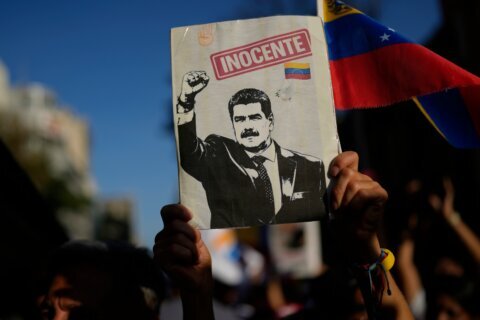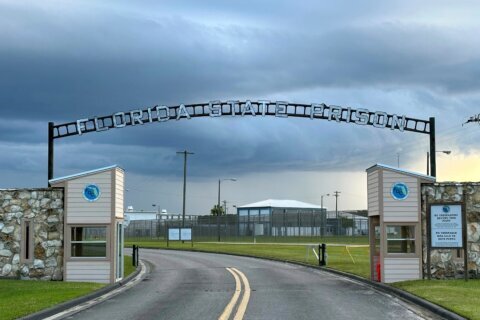It started off as a strange-sounding disease that only other folks were getting.
But then it hit black people with a sudden ferocity. Many of the victims died alone, separated from family. Hospital workers were bewildered. The virus was unstoppable.
That’s what Pernessa Seele saw when AIDS first devastated the black community in the late 1980s. She worked then as an immunologist at a Harlem hospital.
She’s seeing a similar pattern now as the coronavirus ravages African American communities in Chicago, New York, Detroit, New Orleans and other places. For blacks, already more likely to die from HIV/AIDS than any other group in America, it’s a double pandemic — two lethal and incurable viruses hitting at once.
“This coronavirus is treacherous, and it is relentless,” says Seele, founder and CEO of The Balm in Gilead, Inc., a nonprofit that works with faith communities to eliminate health disparities. “It doesn’t care if you have HIV. It’ll fight with HIV for you — two viruses for the control of your death.”
It’s too early to know how many Americans with HIV are dying of coronavirus. But the prospect of both incurable diseases racing through black neighborhoods is causing some black activists and health officials to shudder.
“It makes the specter of Covid-19 even more frightening,” says Gregorio Millett, a vice-president and director of public policy for amfAR, Foundation for AIDS Research. “It places just one more additional burden It could be devastating.”
Being black can be bad for your health
“When whites catch a cold, black folks get pneumonia.”
That’s a folk saying in the black community that reflects a historical pattern: Whenever a disease afflicts America, it hits black America even harder.
Black people are more likely than other Americans to have underlying health issues like diabetes, heart disease and lung disease. Blacks also are statistically more likely to live in poverty, with less access to health insurance. And more are mistrustful of health care providers.
This helps explain why blacks have been disproportionately victimized by HIV and AIDS. African Americans make up 13% of the US population but accounted for 42% of new HIV diagnoses in the United States in 2018, according to the Centers for Disease Control and Prevention.
People are now living longer with HIV because of advances in treatment and medication, but many blacks can’t afford those treatments or don’t live in places where they are readily available, says Seele, from the Balm of Gilead.
“People are living longer with HIV, but if you don’t have access to treatment you ain’t living longer,” she says.
Underlying health issues and limited access to treatment also partly explain why so many coronavirus victims are black. In Chicago, an estimated 72% of Covid-19 deaths have been among blacks, who make up just 30% of the city’s population.
“We are at the top of the totem pole when it comes to disparities,” says Bishop O.C. Allen III, an activist and founder of the Vision Church of Atlanta. Allen, who has hypertension, said he recently spent eight days in isolation in the hospital recovering from the coronavirus.
HIV can make the coronavirus more deadly
The prevalence of HIV infections also makes coronavirus an especially lethal disease in the black community. HIV breaks down its victims’ immune system, and the coronavirus is particularly deadly for people with weakened immune systems.
For one, people with HIV are more likely to develop Type II diabetes, says Dr. Marjorie Innocent, senior director of health programs at the NAACP.
“The reality is that HIV can also increase the risk of developing other chronic conditions that increase the likelihood of complications from COVID-19, the disease caused by the coronavirus,” Innocent says.
When asked if she could recall another time when the black community faced two deadly pandemics simultaneously, Innocent paused before answering.
“Two incurable viruses hitting the African-American population at the same time? I can’t say that I do.”
Some community leaders are worried the coronavirus is already hampering the battle against HIV and AIDS.
“With this coronavirus, people might be afraid [to go to a hospital or clinic] to get an HIV test,” says Allen, the activist.
If few black Americans are getting tested for HIV or the coronavirus, you could potentially have infected people unknowingly spreading both diseases through the community.
Says Allen, “It creates the perfect storm of disproportionate numbers.”
There are reasons for hope
When compared to the HIV pandemic, there are some reasons for optimism about stopping the spread of the coronavirus in the black community.
For one, there was a stigma attached to victims of AIDS — especially back in the 1980s, in the early days of the virus — that does not exist with people diagnosed with the coronavirus.
Many blacks are being exposed to Covid-19 because they hold service jobs, as grocery clerks or bus drivers or nurse’s aides, and don’t have the privilege of working from home. Americans today are praising the courage of these workers, not vilifying them as many once did with AIDS patients.
“President Trump has called this a war against the virus, and those are the people who are on the front lines,” says Allen, the activist. “We are the ones who are delivering goods, working the cash register. We’re out there.”
In addition, many of the public health officials now leading the nation’s battle against Covid-19, including Dr. Anthony Fauci, are the same people who helped reduce the AIDS death toll, Millett says.
“That’s the silver lining,” Millett says. “We’ve been successful in turning around one of the major epidemics of our lifetime, which is HIV. We’ve done this before.”
But some things will need to change
But for such efforts to have a chance at success, experts say we will need more data on the coronavirus’ impact on black patients.
This is why the NAACP and other groups are calling for more hospitals and public health officials to release a racial and ethnic breakdown of coronavirus victims, Innocent says. Up until now, that information has been spotty.
“It’s very troubling that it’s taken this long for data showing the disproportionate impact on African Americans to be released,” Innocent says.
Some also are concerned that even when health officials beat back the coronavirus, blacks will be the last to benefit because they won’t have access to quick testing and advanced treatments.
“Even when we need these new innovations, the communities that need them the most won’t get them,” Millett says. “You see this over and over again.”
Until more black Americans rise out of poverty and get better medical care, they will continue to be at the mercy of pandemics like AIDS and Covid-19, black activists and health care leaders say.
If that happens, it’ll be a grim replay of what Seele saw from the front lines of the AIDS epidemic — and something she now dreads.
“The death toll will continue to rise in the black community,” she says. “We’ll be left out again.”







